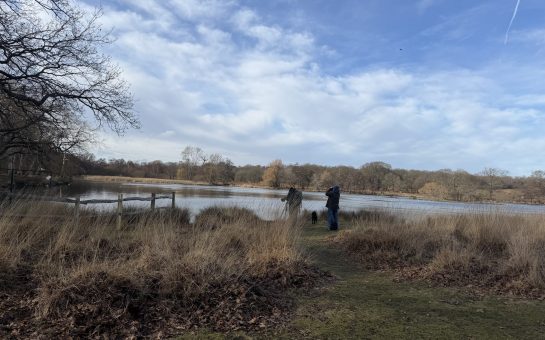June Ban-Hutchison spoke at Twickenham Library to celebrate the start of Black History Month.

An acclaimed author, academic, activist and local resident, June Bam-Hutchison spoke at Twickenham Library last weekend to celebrate the start of Black History Month.
Dr Hutchinson spoke to an audience of many different ages and ethnicities about her experiences growing up as a ‘coloured’ citizen in apartheid South Africa, born into a family of mixed ancestry.
It was not until June reached adulthood that apartheid finally came to an end in 1994.
Her one-hour talk provided a vivid and often disturbing insight into the trials faced by those deemed second-class citizens by the white minority.
The talk coincided with the release of her semi-biographical book Peeping Through the Reeds, written under her pen name, Musava.
Reading an extract from the novel, Dr Hutchison recalled a childhood visit to the dentist in which four of her front teeth were pulled out for no medical reason.
She said: “At that moment I knew I had been branded. I knew I was not white and I knew what that meant.”
Dr Hutchinson spent much time as a child attempting to straighten her hair and whiten her skin in the hope that she would be permitted to swim in the sea or visit lighter skinned family members.
Before 1994, it was common for paler members of a mixed heritage family to sever contact with the rest of their families as mixed race interaction as forbidden.
She described one aunt who willingly hid in the cupboard when her husband received white visitors.
To reveal herself would have meant her husband surrendering the white classification on his ID card.
However, Dr Hutchison emphasised that her book was not “all doom and gloom,” speaking with warmth and humour of bittersweet family picnics to a murky marsh, pretending the muddy water was the prohibited sea.
Asked whether she felt that race relations in South Africa was on the road to recovery, she said that while South Africa is now a democracy, “class and poverty struggles are very apparent.
“I grew up with so much beauty around me, yet I was denied access. It was effectively a beautiful concentration camp.”
Throughout October, further talks will take place in libraries and town halls across South West London.
Black History Month aims to celebrate historic contributions made by black people on a local, national and international level.
Cllr Fleming, Cabinet member for Community, Business and Culture said: “I strongly encourage everyone who can to come along to the events and help us to celebrate.”
For more information visit: www.blackhistorymonth.org.uk
Follow us on @SW_Londoner




